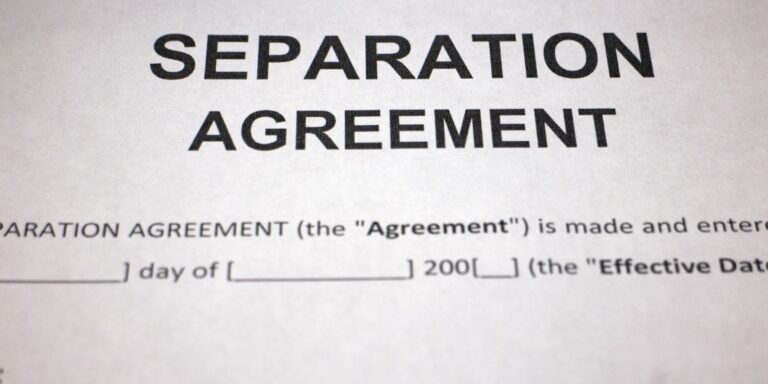At Evans Family Law Corporation and our companion firm, Evans Mediation & Arbitration, we help couples who are separating through alternative dispute resolution processes. This post provides an overview of the differences between collaborative law and mediation and the factors involved in choosing the best approach for your situation.
Collaborative law:
Collaborative law requires that the couple share all necessary information openly, work to reach a resolution that meets shared goals, and commit to avoiding using the court system to resolve legal issues.
In this process, each spouse has a lawyer who represents them. But, unlike the court system, the lawyers don’t “fight” to get their clients the most they can. Instead, they work as part of the collaborative team to provide legal information, assist the couple in reaching an agreement and ensure all legal issues are covered. Each person gets independent legal advice from their lawyer about the separation agreement the spouses reach.
In addition to the lawyers who represent the spouses, the collaborative team often includes parenting and relationship coaches. If needed, financial professionals are part of the team too. Each professional is an expert in their field and is the best resource for the couple when making decisions about parenting arrangements and financial resolution.
Consider collaborative law for divorce when:
- you want to avoid the court system
- there is a power imbalance between you and your spouse
- parenting or relationship coaching would be helpful
Mediation:
In the mediation process, the separating couple works with a neutral third party, the mediator, on all the matters necessary to reach a resolution. The mediator doesn’t provide legal advice, but once the parties reach an agreement, they will send each person to separate lawyers for independent legal advice before finalizing it.
At Evans Mediation & Arbitration, we offer mediation services led by lawyers acting as mediators. The benefit of having lawyer mediators is that they can ensure that all legal issues in your separation are covered and that none of the terms are legally untenable.
Sometimes in the mediation process, a parenting or relationship coach will become part of the process to help the couple sort out a parenting arrangement.
Consider mediation for divorce when:
- you are able to have open conversations with your spouse or partner
- the support of a lawyer in discussions about legal matters isn’t a priority
- you are looking for an out-of-court process to resolve disputes
The difference between collaborative law and mediation
To summarize, in collaborative law, each spouse has their own lawyer as part of a team of professionals helping the couple reach an agreement. In mediation, a neutral third party works with the couple to help reach an agreement. Both collaborative law and mediation allow the couple to have control over the resolution of their separation without escalating conflict through the court process.
 By Kelly Riediger
By Kelly Riediger
If you are interested in learning more about collaborative law or mediation, contact me today at [email protected].

